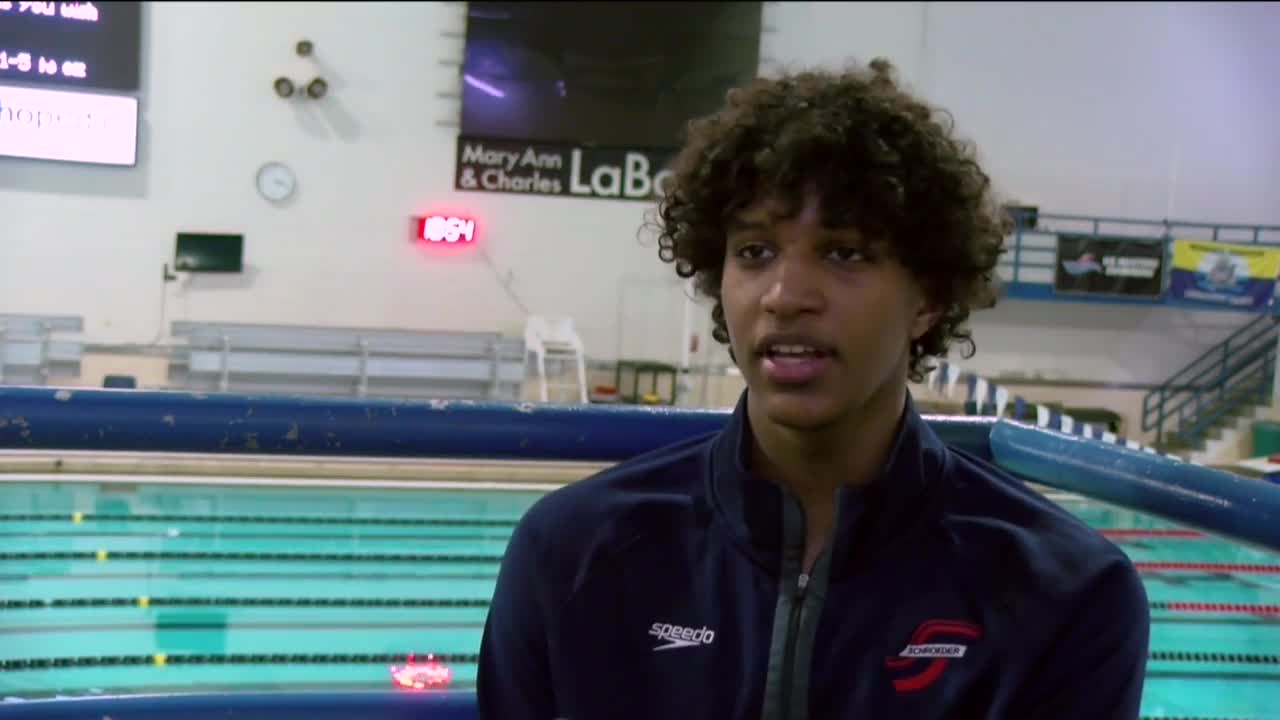It's funny how learning something new can turn into that thing you're meant to do.
"First it started off as swim lessons. My dad just wanted us to learn how to swim," says Ziyad Saleem, a senior swimmer at Rufus King High School. "I mean I was good at like soccer and other things. But swimming was just my thing and something I enjoyed the most out of all the other sports. That led to me continuing to do it."
For Ziyad, the pool is his stadium, and the score is measured in seconds.
"There's been a lot of prep, for like two years now, of the time in my mind," says Ziyad.
That time includes 55.74 seconds in the 100-meter backstroke and 2:01 in the 200-meter backstroke. In a surprising twist, these are marks Ziyad has been able to reach thanks to COVID-19 giving athletes an extra year to train.
"Everything got shutdown, which was a positive for me since I got everything pushed back and I was able to have an extra year of prep to try and get those cuts. Now having the ability to get the FINA, and I've been able to get the trails cut," says Ziyad.
Already qualified to swim in the U.S. Olympic Trials, Ziyad is realistic about the level of competition and experience in those pools. However, a citizen of Sudan, if he can shave 2-4 seconds off those initial times, you could see this young Milwaukeen represent in Tokyo.
"Slowly but surely I've been getting closer and closer to that time, and I'm ready to go and punch my ticket pretty soon," says Ziyad.
As a Cal commit, Ziyad still has Olympic dreams in red, white, and blue. But if this Muslim swimmer can put his heritage on an Olympic stage now, who are we to not cheer him on.
"I think it just gives me more motivation to continue to get better. Having both support systems is great and it's a good motivation for me. In my past swimming for them, everything I've done and accomplishments in swimming, there are a lot of people there who enjoy watching me and keeping up with my times," says Ziyad. "There's a lot of things, in the media, just uncertainty and unclarity about who we are. And Sudan in general. Just leading by example and showing we're not the stereotype people project us to be. So this is like a positive light for the whole country."



